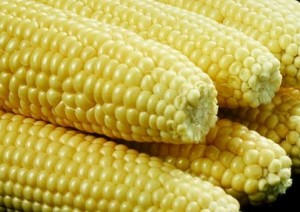GMO products already enter Ghana – USDA
 For sometime now, groups opposing the imports of genetically modified organisms (GMOs) or biotechnology products into Ghana say, these products are already being exported into Ghana.
For sometime now, groups opposing the imports of genetically modified organisms (GMOs) or biotechnology products into Ghana say, these products are already being exported into Ghana.
One such groups, Food Sovereignty Ghana has indicated that these food items are being sold in the country without labels clearly indicating what they are or what they contain.
A recent report by the United States Department of Agriculture (USDA) confirms that indeed such products are in the country.
According to the USDA, currently, Ghana imports processed products from South America, Europe and the United States that “may contain biotechnology elements.”
“Barring recent concerns raised on the export of seeds to Ghana, there is no discrimination of any sort directed at the existing US agricultural trade interests, namely food exports to Ghana,” it added.
GMOs are food crops that have been injected with genomes or genes from other living organisms to make them resistant to pests, grow in some environments or produce high yields, through the scientific process known as biotechnology .
GM corn or maize now makes about 81 per cent of the trade in crops globally and 89 per cent of the soybean supplied between 2009 and 2010 was from GM corn countries, despite concerns about their safety both to humans and the environment, Prof. Adelaida Harries of Iowa State University in the US told ghanabusinessnews.com in 2011.
And available data shows that international trade in GM seeds has grown to about $42 billion, by that same year.
Data from the Iowa State University indicates that more than 70 countries in the world have harmonised their seed policies and regulations since 1992.
Ghana’s Parliament passed the Biosafety Law on June 21, 2011. The President of Ghana signed the Ghana Biosafety Act, 2011 (Act 831) in December 2011.
Act 831 established the National Biosafety Authority as the administrative body responsible for all issues related to Biotechnology in Ghana and in April 2015, Cabinet approved the Biotechnology regulations.
By Emmanuel K. Dogbevi
Copyright © 2015 by Creative Imaginations Publicity
All rights reserved. This article or any portion thereof may not be reproduced or used in any manner whatsoever without the express written permission of the publisher except for the use of brief quotations in reviews.
